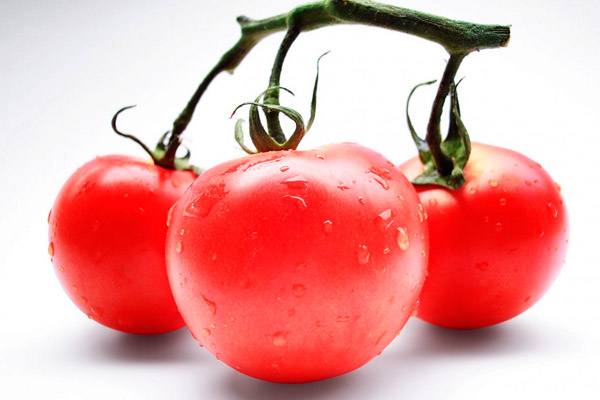
All iLive content is medically reviewed or fact checked to ensure as much factual accuracy as possible.
We have strict sourcing guidelines and only link to reputable media sites, academic research institutions and, whenever possible, medically peer reviewed studies. Note that the numbers in parentheses ([1], [2], etc.) are clickable links to these studies.
If you feel that any of our content is inaccurate, out-of-date, or otherwise questionable, please select it and press Ctrl + Enter.
Tomatoes in gout: can you or not?
Medical expert of the article
Last reviewed: 06.07.2025

Being a full member of the nightshade family, tomatoes are among the popular plant products that are the subject of much controversy. And the main point of medical and dietary discussions is whether it is possible to eat tomatoes with gout.
Until researchers come to a consensus and answer this question unequivocally (if that is possible!), we are left to present the various points of view and arguments of those who express them.
You can eat tomatoes if you have gout: the main arguments
Many nutritionists claim that eating tomatoes for gout can reduce urine acidity. Why is this necessary?
When the blood level of uric acid increases – a product of the biological nitrogen cycle and the urea cycle in the body – it can be removed by normally functioning kidneys. But for this, the blood acidity level must be normal (pH 7.34-7.45). One of the reasons for the retention of uric acid in the blood and the deposition of its insoluble crystals in the joints – gout – is increased blood acidity (the balance of acids and bases is disturbed). To bring this indicator to normal, it is recommended to consume foods with alkalizing properties – vegetables, fruits and berries, which contain organic acids.
Tomatoes are rich in acids, including carboxylic (citric, malic, tartaric, oxalic, succinic, fumaric), hydroxyacetic (glycolic), oxohexanoic (galacturonic), and hydroxycinnamic acids (caffeic, ferulic, and coumaric).
The alkaline effect that tomatoes provide for gout is achieved by neutralizing organic acids in the stomach with an alkaline secretion produced by the glands of the pyloric section. The secretion consists of bicarbonates (bicarbonate salts), chlorides, sulfates, etc. As a result of the reactions, acids give up positively charged ions (cations), and, as is known from physiology, it is the cations that create an alkaline environment.
In addition, the previously mentioned hydroxycinnamic acids can also be useful for gout. Firstly, due to their antioxidant properties, which protect the body from the effects of free radicals. Secondly, these organic acids are phenylpropene compounds, and the presence of a phenolic group indicates their ability to reduce inflammation - by inhibiting the production of enzymes necessary to activate the inflammatory response.
It is believed that the anti-inflammatory effect of tomatoes during gout attacks can be enhanced by lycopene, a red pigment, an isomer of β-carotene with significant antioxidant potential. Lycopene in 100 g of tomatoes is 2.57 mg. However, it can be absorbed, like all carotenoids, only in the presence of fats.
It is not recommended to eat tomatoes if you have gout: main reasons
By the way, the diet for gout (No. 6), also recommended for urates and oxals in urine and uric acid nephrolithiasis, does not contain a single word about the fact that tomatoes should not be eaten with gout. Of the plant products, spinach, sorrel and legumes should be excluded. And tomatoes, eggplants, green peppers, parsley (greens), as well as cauliflower, cranberries and raspberries are recommended to be simply limited.
Some people believe that nightshades—potatoes, eggplant, peppers, and tomatoes—increase inflammation and joint pain, but there haven't been any serious studies on this.
For example, in the summer of 2015, researchers from the University of Otago (New Zealand) conducted a survey of local residents suffering from gout regarding products that trigger attacks of pain. A little more than two thousand people responded. Fourth place (after alcohol, seafood and red meat) was taken by tomatoes for gout. Rheumatologists suggest that eating tomatoes can cause attacks of gout due to an increase in urates in the blood serum. The indigenous New Zealanders - the Maori - had no idea about this disease 100 years ago. And now among the Maori and men of the Pacific Islands, the level of gout is 10-15%.

Scientists suggest that the culprit may be the glutamic acid in tomatoes in the form of monosodium salt - glutamate, which is a source of nitrogen in the synthesis of purines, and its excess becomes a stimulator of the production of uric acid salts.
So the University of New Zealand's Department of Biochemical Research decided that further research was needed to determine whether tomatoes should be added to the list of dietary exclusions for gout.
Tomatoes for gout - part of a balanced diet
Based on everything that was said above, a tomato-based diet for gout is, as you yourself understand, impossible. And advice from the Internet about how a stable decrease in the level of uric acid in the blood is guaranteed by daily consumption of tomato gazpacho soup (fresh tomatoes, cucumbers, green peppers, onions and garlic chopped in a blender with the addition of wine vinegar and olive oil) is complete renix (that is, nonsense).
Although tomatoes are rich in vitamins and minerals and are suitable for most gout sufferers, they should be consumed as part of an overall balanced diet. In addition, tomatoes are 94% water, making them an excellent diuretic, which has a positive effect on kidney function.
So if you suspect that tomatoes or other foods are aggravating your symptoms, take the sensible approach: just don't include them in your diet.
We hope that now your understanding of tomatoes and their properties has expanded. And those who suffer from gout, it remains to take into account the information received and decide: should they eat tomatoes for gout?

